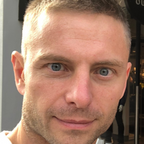Why do ICU patients get oedematous, and does it really have to be that way? Join our expert panel as they unpack the common myths around fluid overload, share real-life cases, and explore how well-meaning resuscitation can sometimes do more harm than good. Using case-based studies, we’ll dive into concepts like fluid tolerance, venous congestion, and multimodal diuresis, offering a fresh, physiology-led approach to haemodynamic management. Whether you're new to critical care or rethinking your practice, this session will get you questioning the status quo.
Learning objectives
1. Recognise the myths and clinical habits that contribute to avoidable oedema in critically ill patients.
2. Understand the principles of fluid tolerance and venous congestion to guide more physiologically sound fluid resuscitation.
3. Apply a rational, integrated approach to perfusion and diuresis using real-world cases and emerging evidence.
×
Dr Andy Breen
Consultant Intensiveist and ICS Honorary Secretary
Andy is a consultant in ICM working in Leeds Teaching Hospitals, having been appointed in 2005. He is Clinical Director for Adult Critical Care in Leeds, and an elected Intensive Care Society Council member. He graduated in Liverpool in 1995, where he completed his clinical training in anaesthesia and intensive care medicine.
Andy is strong interest in point-of-care ultrasound, having been a founding member of the FICE committee, current member of the FUSIC committee and co-author of a number of POCUS accreditation programmes. Other interests include ethical decision making and advance care planning, the science of quality improvement and IV fluids education.
:
@ICUbreeno
×
Dr Ashley Miller
Consultant Intensivist
Ashley Miller is an Intensivist at Shrewsbury and Telford Hospitals. His specialist area of interest is Intensive Care ultrasonography. The 1st person to become BSE accredited in Critical Care Echocardiography, he is a BSE committee member and examiner. He has co-authored guidelines for the BSE on assessing fluid responsiveness with echocardiography. He is an elected ICS council member and co-chair of the Focussed Ultrasound in Intensive Care (FUSIC) committee where he has helped introduce a modular curriculum and accreditation pathway for Intensive Care ultrasonography. He is a speaker on ultrasound at international conferences and teaches on ultrasound courses around the country. He is a published author on ultrasound and is co-editing a forthcoming textbook on critical care ultrasound.
:
@icmteaching
×
Dr Ross Prager
Intensivist, London Health Sciences Centre
As an Intensivist at London Health Sciences Centre and a Clinical Scholar at Western University, Canada, Ross combines his clinical expertise in critical care medicine with research interests in critical care ultrasound and evidence-based knowledge translation.
His current research projects focus on venous congestion in septic shock, knowledge translation within critical care medicine, medico-legal implications of point-of-care ultrasound, and AI lung ultrasound classification. He is a member of the project Deep Breathe, a multidisciplinary collaboration that aims to improve the diagnosis and treatment of respiratory diseases using ultrasound and machine learning. His goal is to advance the field of critical care ultrasound and enhance its clinical application and impact.


